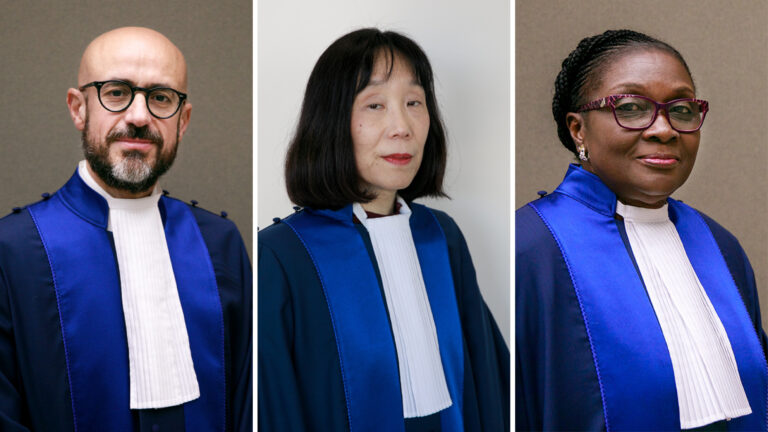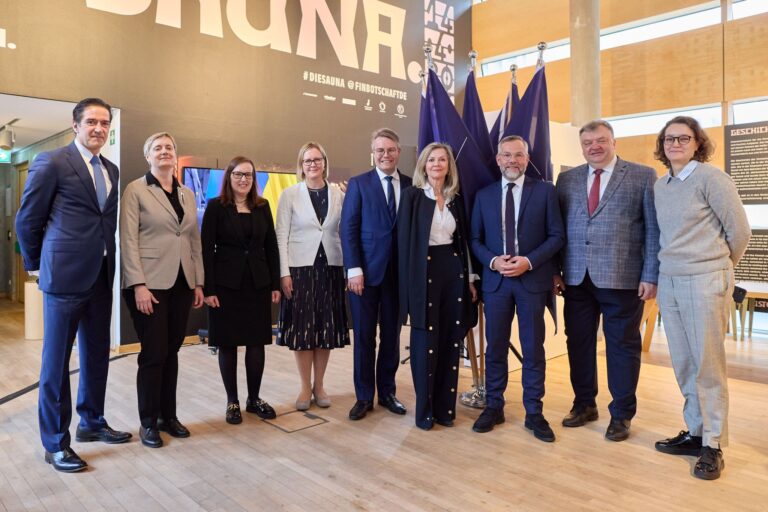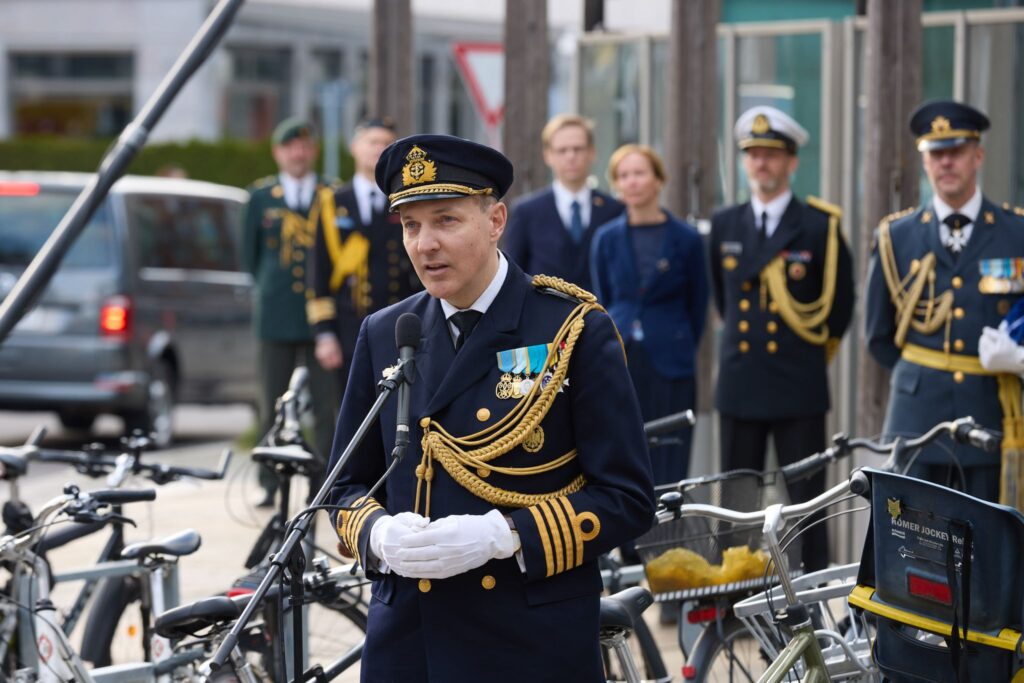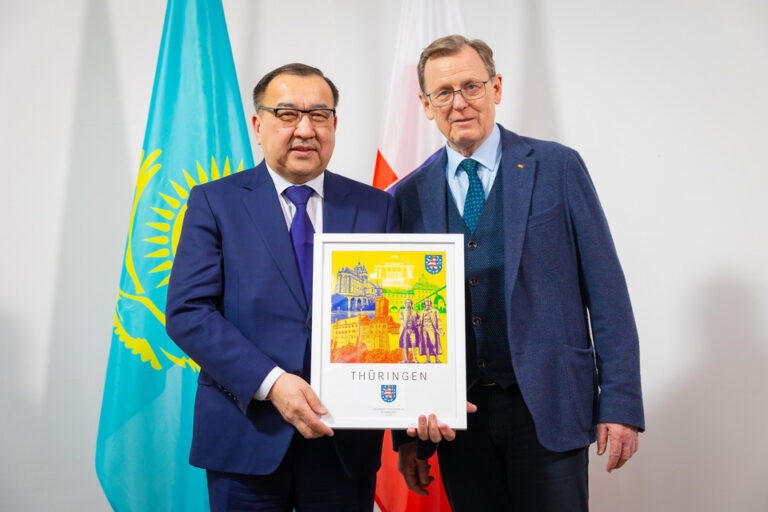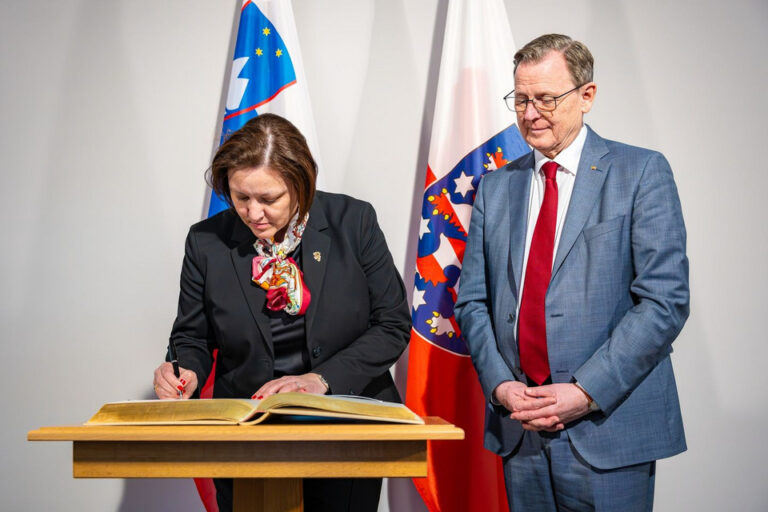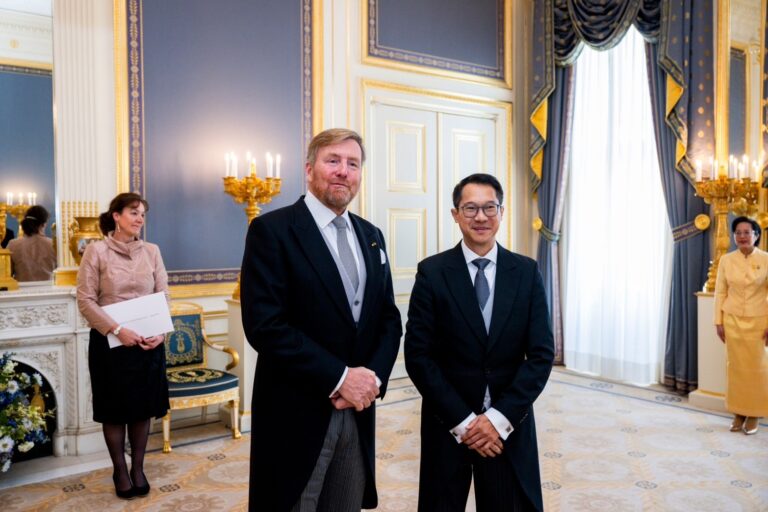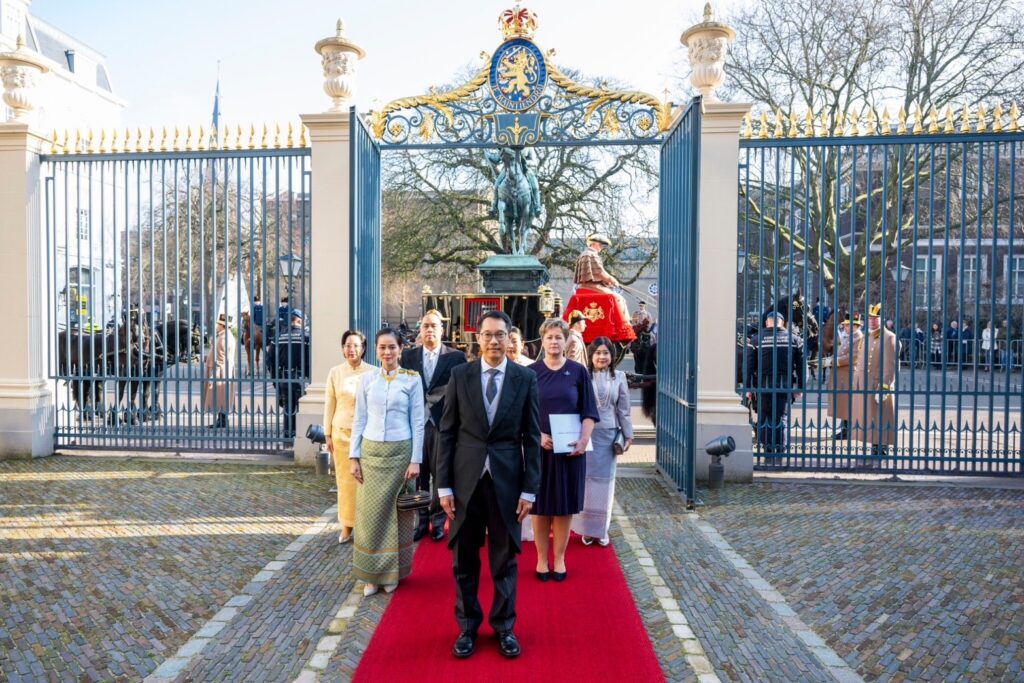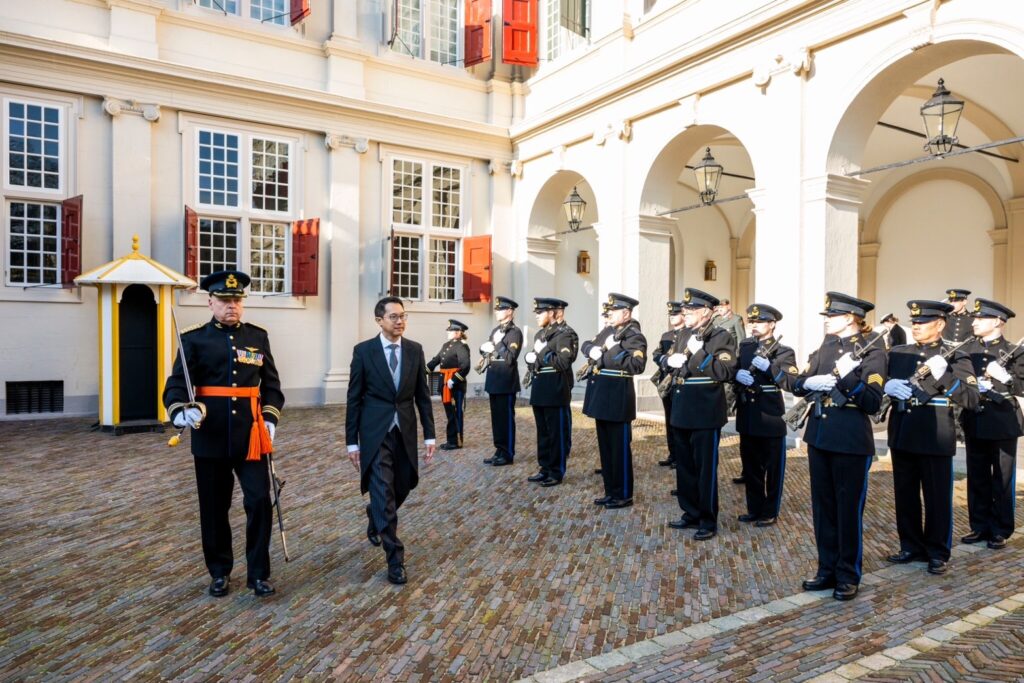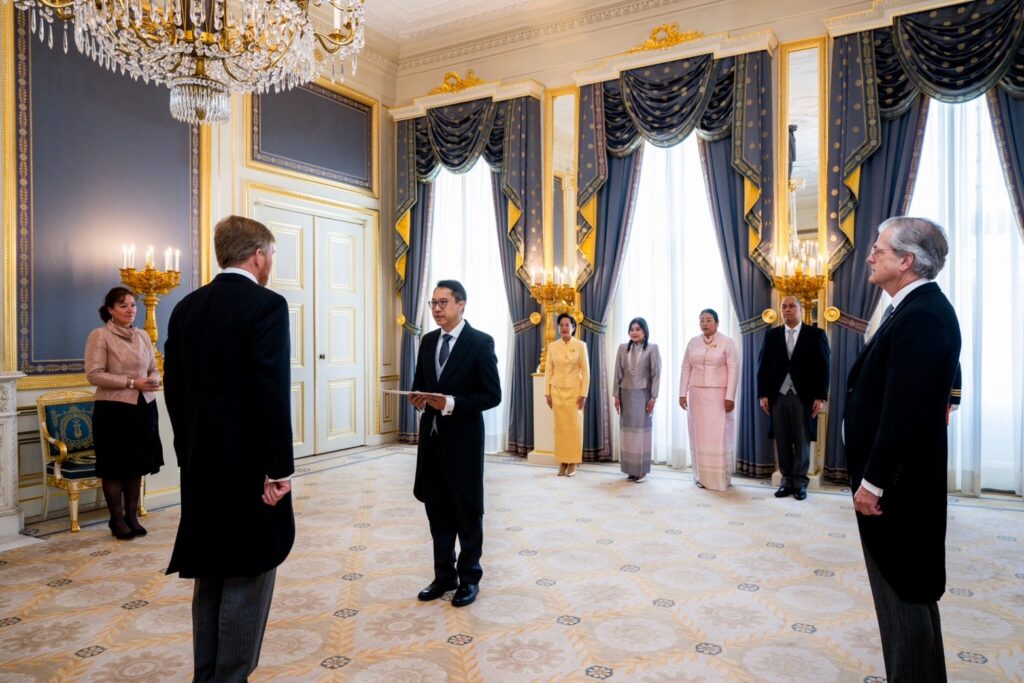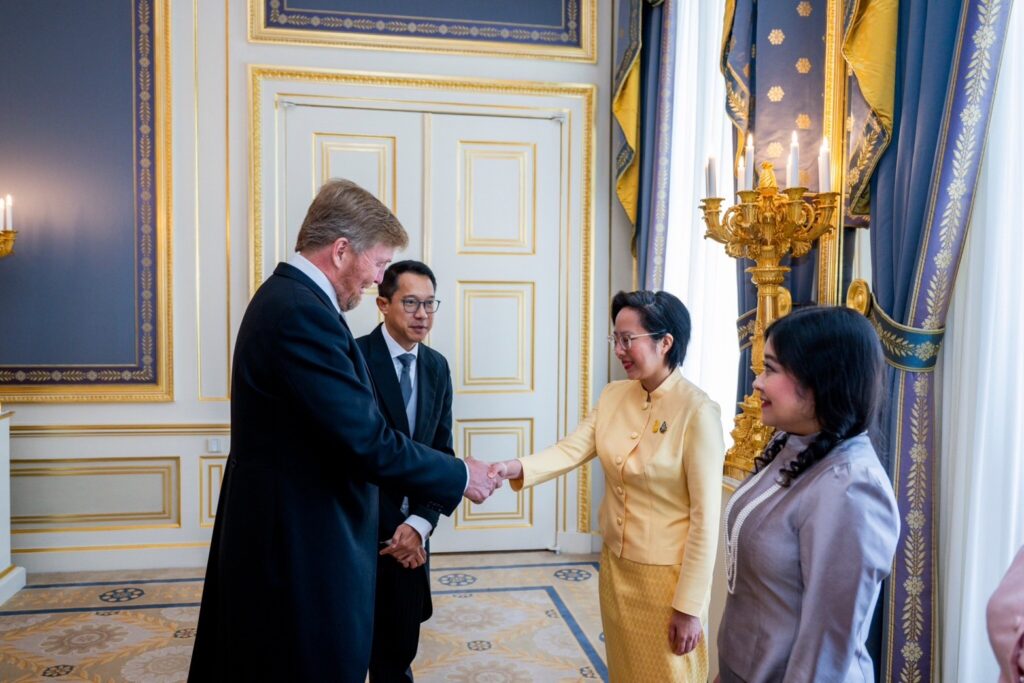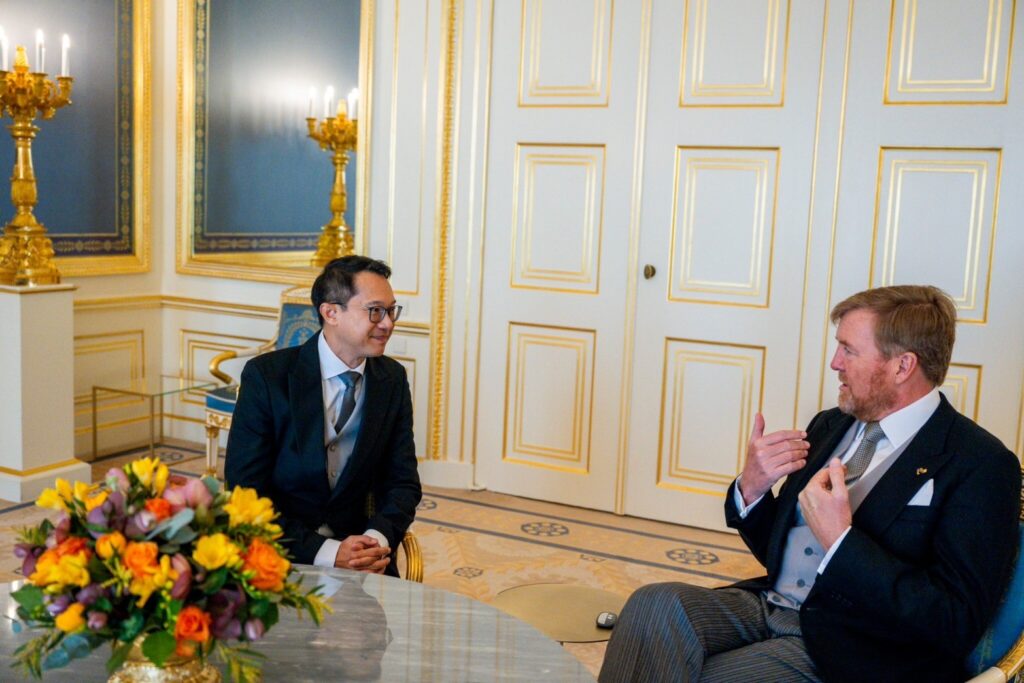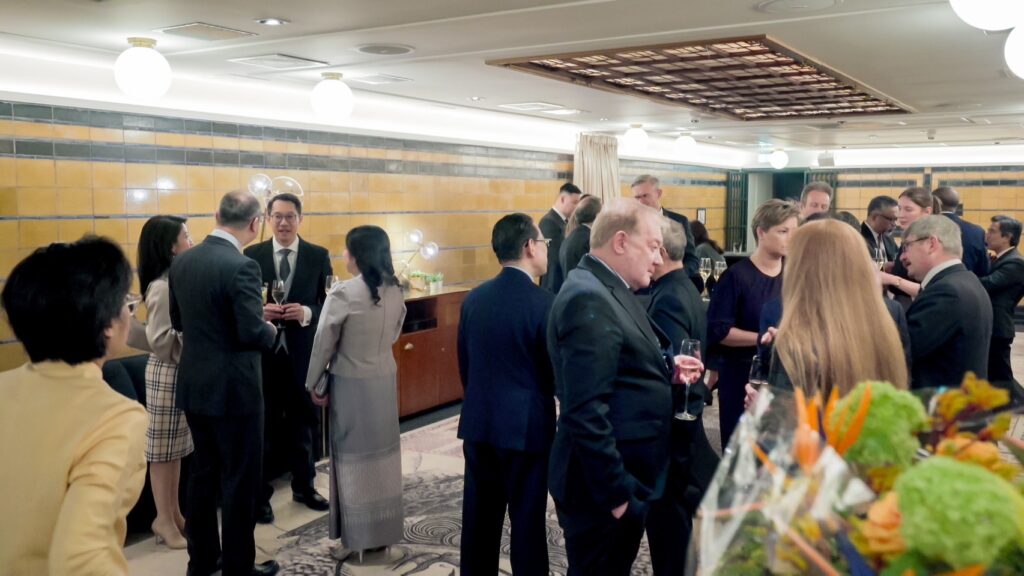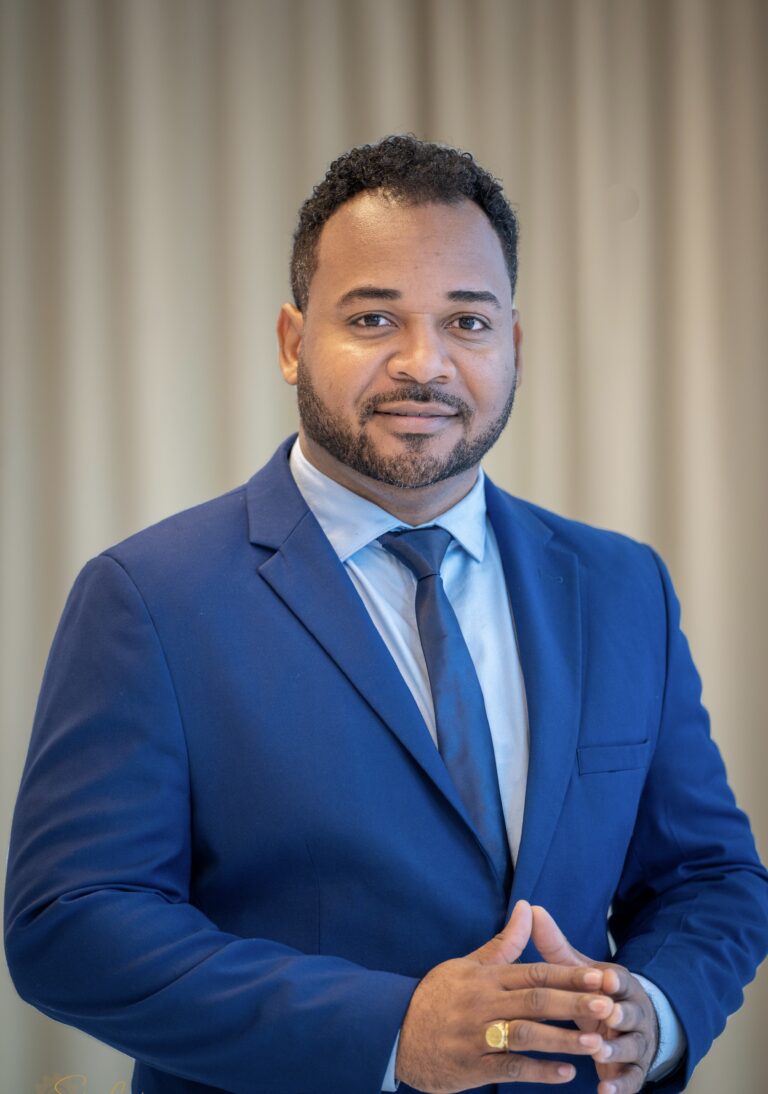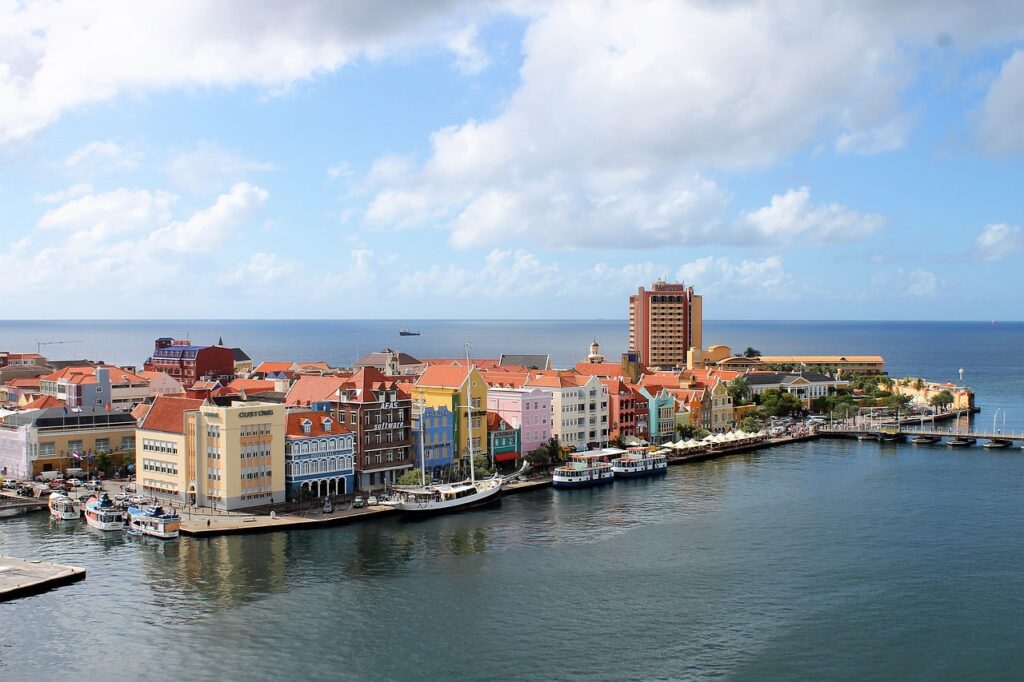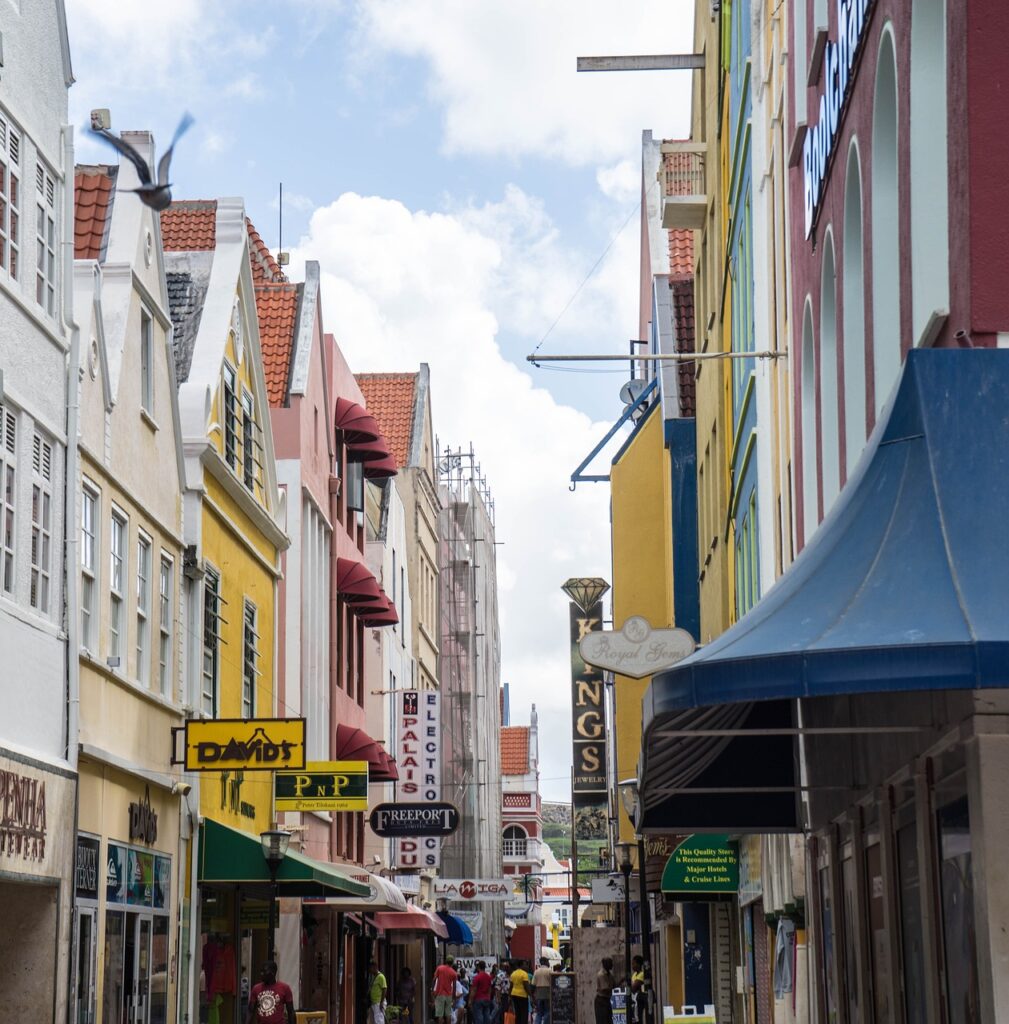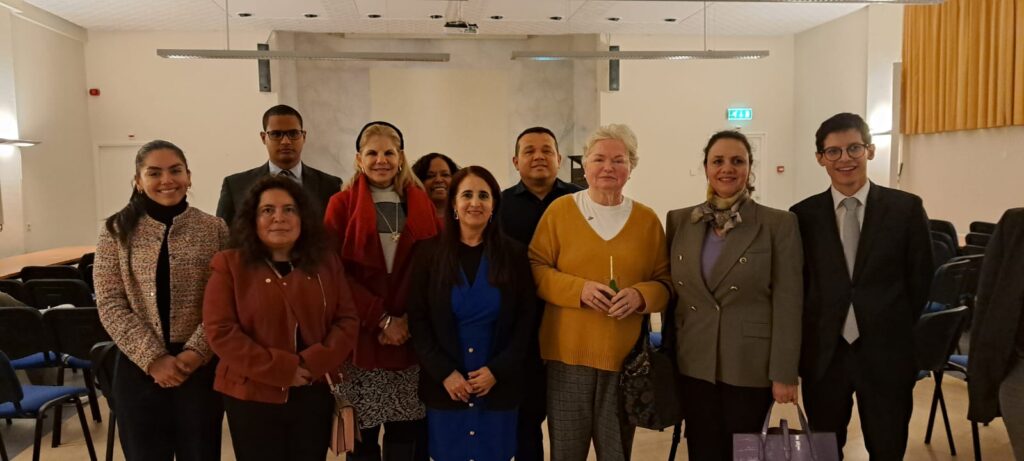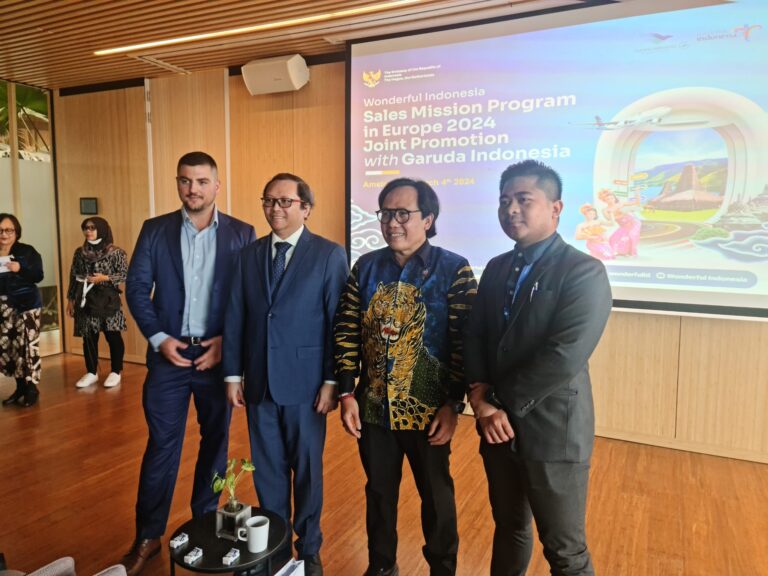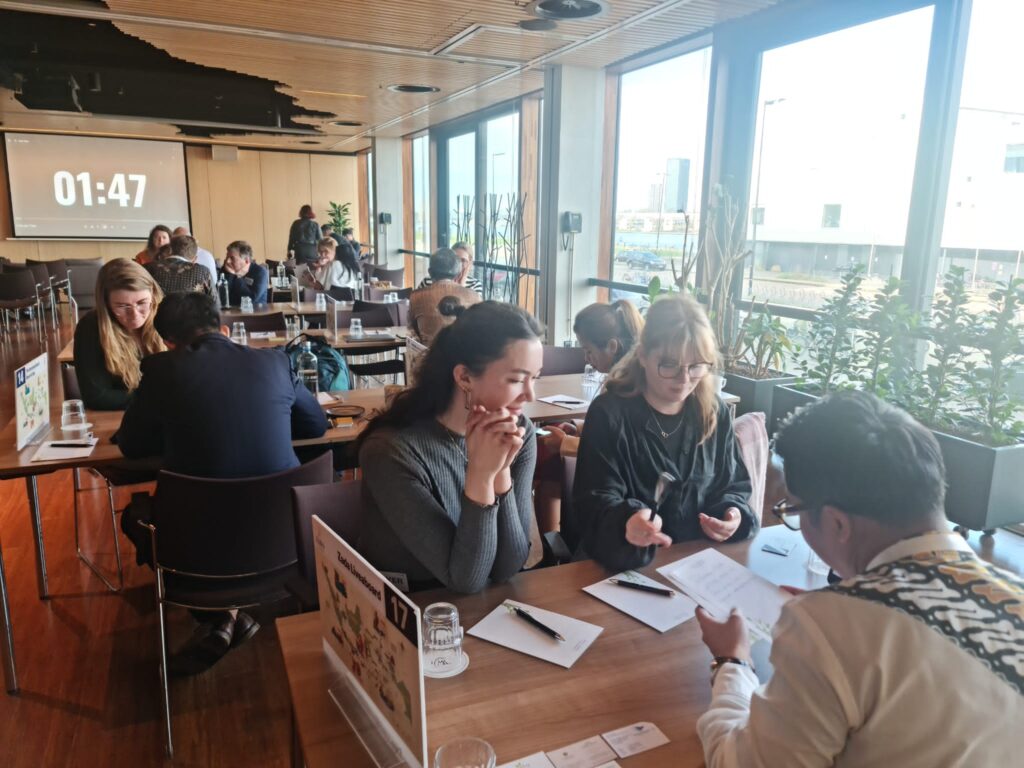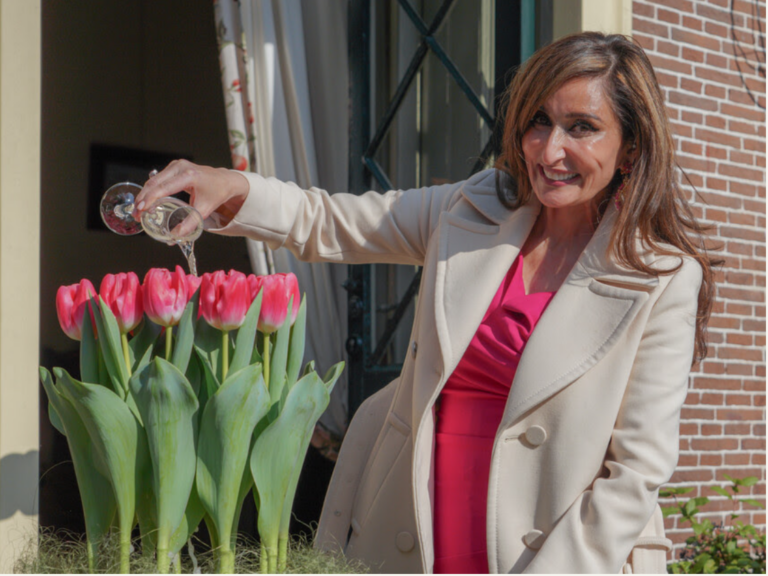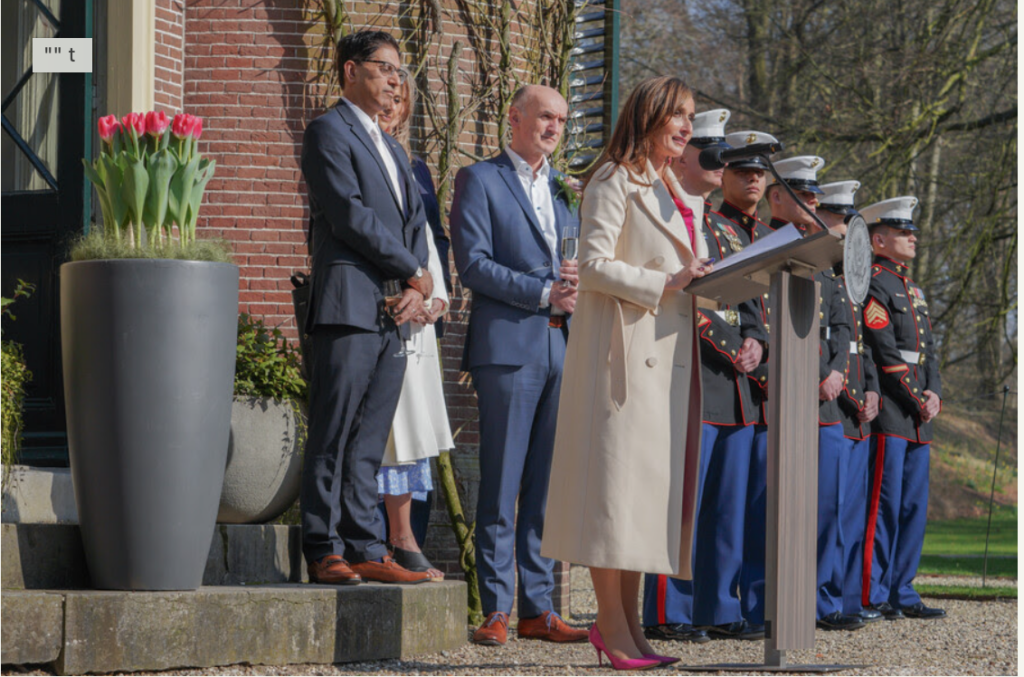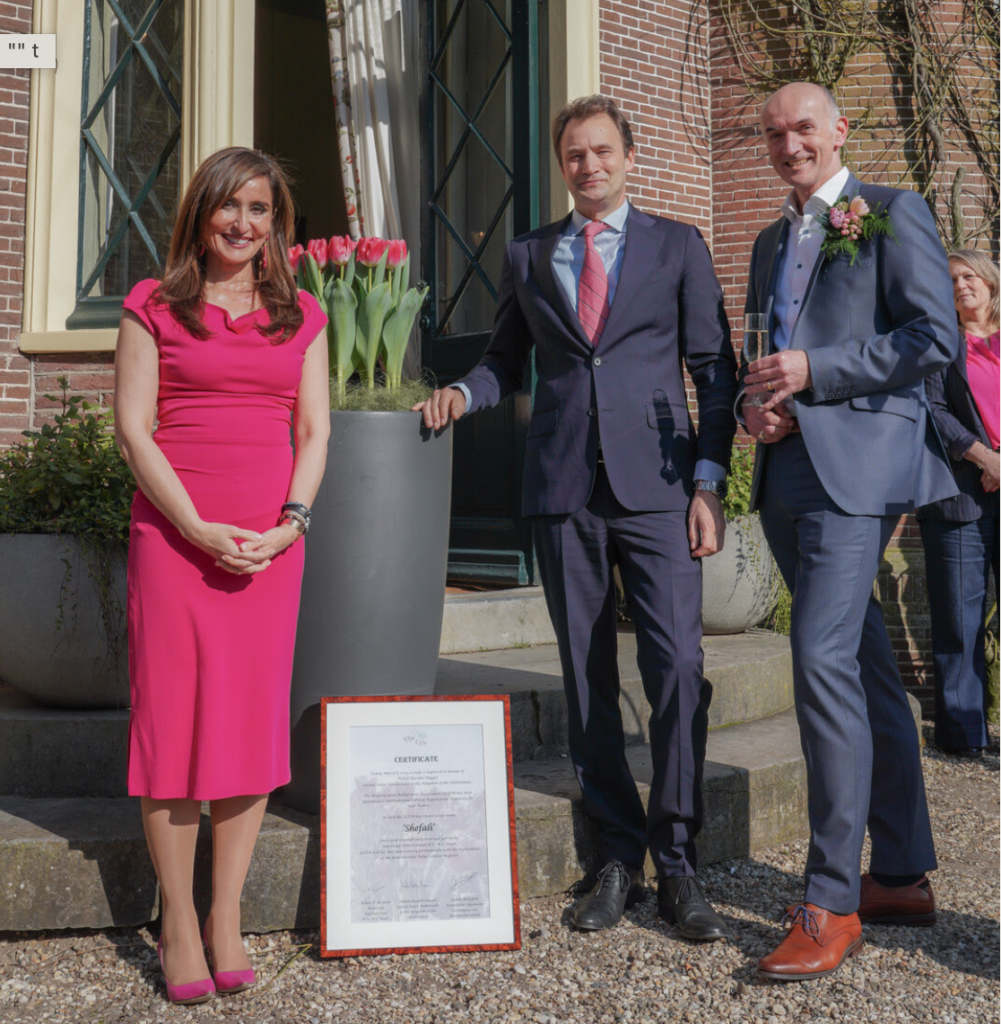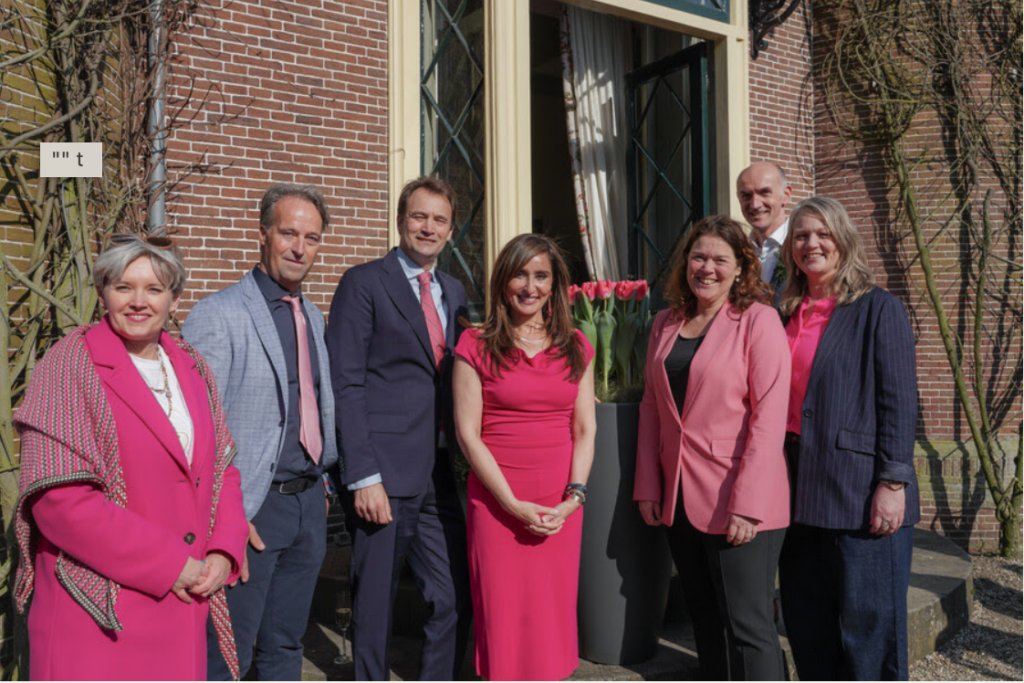Following the solemn undertaking of six newly elected judges of the International Criminal Court (ICC) on 8 March 2024 and the Presidency’s election on 11 March 2024, the Presidency of the Court has assigned the judges to the three judicial divisions.
The Presidency also recomposed a number of Chambers where necessary, dissolved Trial Chamber VII, Trial Chamber VIII and
Trial Chamber IX and constituted Pre-Trial Chamber III and reassigned the situation in Uganda to it. The assignments as well as the re-composition of Chambers is effective as of 12 March 2024.
The Appeals Division will be constituted of Judges Tomoko Akane, Luz del Carmen Ibáñez Carranza, Solomy Balungi Bossa, Gocha Lordkipanidze and Erdenebalsuren Damdin.
The Trial Division will be constituted of Judges Kimberly Prost, Joanna Korner, Miatta Maria Samba, Althea Violet Alexis-Windsor, Keebong Paek, Nicolas Guillou and Beti Hohler.
The Pre-Trial Division will be constituted of Judges Rosario Salvatore Aitala, Reine Alapini-Gansou, María del Socorro Flores Liera, Sergio Gerardo Ugalde Godínez, Iulia Motoc and Haykel Ben-Mahfoudh.
The situations in the Democratic Republic of the Congo I; the Democratic Republic of the Congo II; Libya; the Republic of Mali; the Gabonese Republic; Registered Vessels of Comoros, Greece and Cambodia; Palestine; the People’s Republic of Bangladesh and the Republic of the Union of Myanmar; the Plurinational State of Bolivia; Georgia; the Bolivarian Republic of Venezuela I; the Bolivarian Republic of Venezuela II and the Republic of Philippines will be assigned to Pre-Trial Chamber I, to be composed of Judges Reine Alapini-Gansou, María del Socorro Flores Liera and Iulia Motoc.
The situations in the Central African Republic I; the Central African Republic II; Darfur; the Republic of the Sudan; the Republic of Kenya; the Republic of Côte d’Ivoire; the Islamic Republic of Afghanistan; the Republic of Burundi and Ukraine will be assigned to Pre-Trial Chamber II, to be composed of Judges Rosario Salvatore Aitala, Sergio Gerardo Ugalde Godínez and Haykel Ben-Mahfoudh.
The situation in the Republic of Uganda will be assigned to Pre-Trial Chamber III, to be composed of Judges Althea Violet Alexis-Windsor, Iulia Motoc and Haykel Ben-Mahfoudh.
In addition, the Trial Chambers will be composed as follows:
Trial Chamber I
- Le Procureur c. Ali Muhammad Ali Abd-Al-RahmanJudge Joanna Korner, PresidingJudge Reine Alapini-GansouJudge Althea Violet Alexis-WindsorAlternate Judge: Judge Nicolas Guillou
Trial Chamber II
- Le Procureur c. Germain KatangaLe Procureur c. Thomas Lubanga DyiloLe Procureur c. Bosco NtagandaLe Procureur c. Ahmad Al Faqi Al Mahdi
- § Le Procureur c. Dominic Ongwen
- Judge Kimberly ProstJudge María del Socorro Flores LieraJudge Nicolas Guillou
Trial Chamber IV
- Le Procureur c. Abdallah Banda Abakaer NourainJudge Kimberly ProstJudge Keebong PaekJudge Nicolas Guillou
Trial Chamber V
- Le Procureur c. Alfred Yekatom and Patrice-Edouard NgaïssonaJudge Bertram Schmitt, PresidingJudge Péter KovácsJudge Chang-ho ChungAlternate Judge: Judge Beti Hohler
Trial Chamber VI
- Le Procureur c. Mahamat Said Abdel KaniJudge Miatta Maria Samba, PresidingJudge María del Socorro Flores LieraJudge Sergio Gerardo Ugalde GodínezAlternate Judge: Judge Keebong Paek.
Trial Chamber X
- Le Procureur c. Al Hassan Ag Abdoul Aziz Ag Mohamed Ag MahmoudJudge Antoine Kesia-Mbe Mindua, PresidingJudge Tomoko AkaneJudge Kimberly Prost.

Each Division will elect a President of the respective Division from amongst its members and each newly composed Pre-Trial and Trial Chamber will elect a Presiding Judge. The Appeals Chamber decides on a Presiding Judge for each appeal. According to article 39(1) of the Rome Statute, the assignment of judges to Divisions by the Presidency is based on the nature of the functions to be performed by each Division and the qualifications and experience of the elected judges, so that each division contains an appropriate combination of expertise in criminal law and procedure and in international law. The judges are assigned for three years, and thereafter until the completion of any case.
The judges assigned to the Appeals Division serve in the Appeals Division for their entire term. On the basis of workload, consistently with the requirements of article 35(3) of the Rome Statute, and applying an objective criterion of prioritising the calling to full-time service of judges who are nationals of States Parties which have never previously had a judge serving at the Court, Judges Damdin and Motoc will commence full-time service in mid-May 2024, Judges Ben-Mahfoudh and Hohler will commence full-time service in mid-June 2024 and Judges Paek and Guillou from mid-August 2024.

